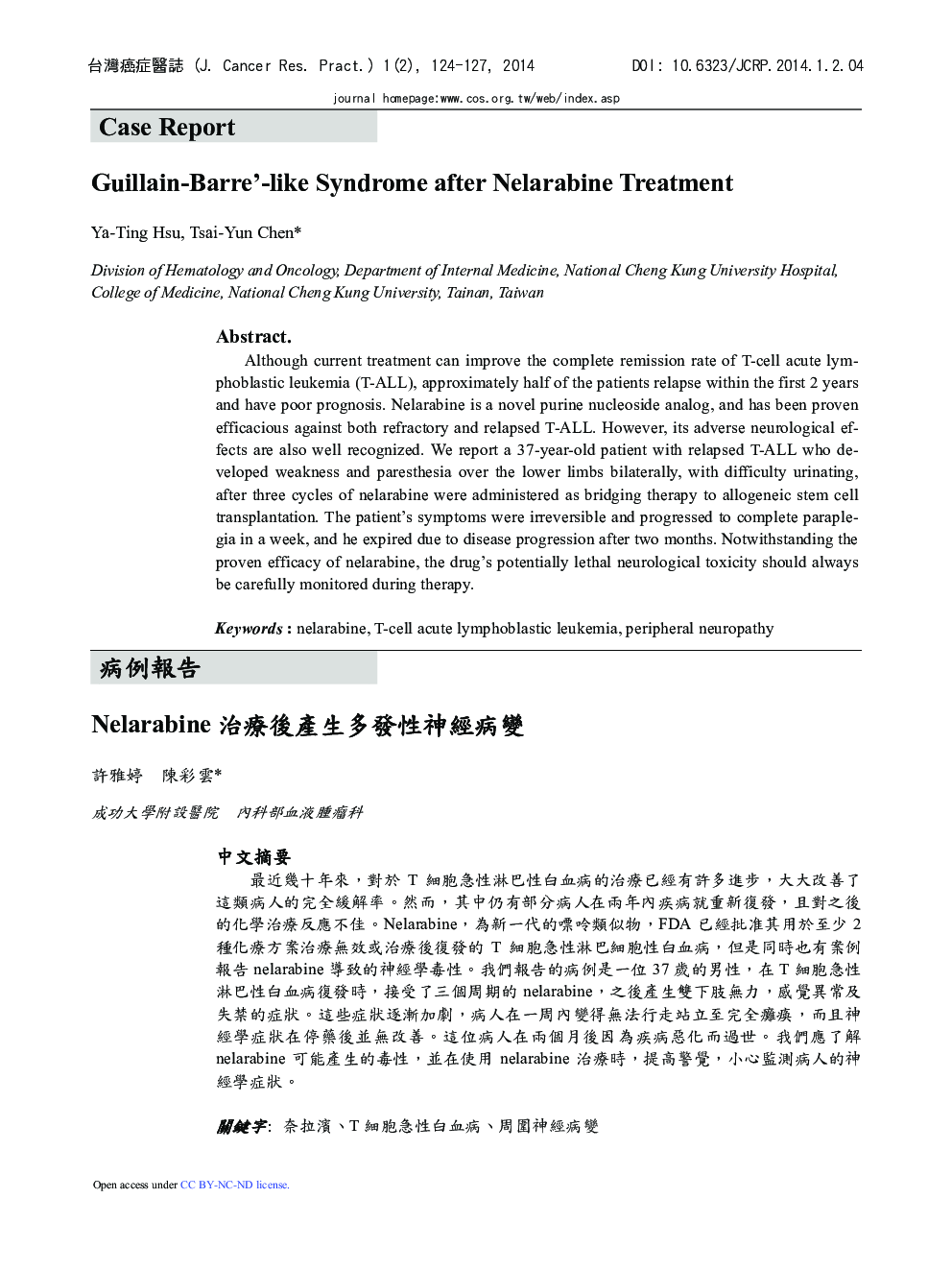| Article ID | Journal | Published Year | Pages | File Type |
|---|---|---|---|---|
| 3988811 | Journal of Cancer Research and Practice | 2014 | 4 Pages |
Although current treatment can improve the complete remission rate of T-cell acute lymphoblastic leukemia (T-ALL), approximately half of the patients relapse within the first 2 years and have poor prognosis. Nelarabine is a novel purine nucleoside analog, and has been proven efficacious against both refractory and relapsed T-ALL. However, its adverse neurological effects are also well recognized. We report a 37-year-old patient with relapsed T-ALL who developed weakness and paresthesia over the lower limbs bilaterally, with difficulty urinating, after three cycles of nelarabine were administered as bridging therapy to allogeneic stem cell transplantation. The patient's symptoms were irreversible and progressed to complete paraplegia in a week, and he expired due to disease progression after two months. Notwithstanding the proven efficacy of nelarabine, the drug's potentially lethal neurological toxicity should always be carefully monitored during therapy.
